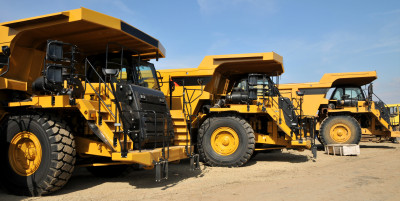
Being a customs broker definitely means thinking on your feet. In the course of our work, we come across a wide range of unusual situations and do our very best to help clients steer clear of any potential pitfalls. We recently helped two clients deal with some tricky circumstances. See below for all the details.
Timely advice saves time and money
One of our clients notified us that they wanted to purchase a used dumpster truck from Germany. Despite being over six years old, the vehicle had very little wear and tear on it, making it a very attractive investment.
We told the client to make sure that all the labels, especially the EPA, were found on truck. The vehicle was a CAT, which, by and large, is always US approved. However, it turned out that one label was partially torn: only a portion of the “E” in EPA was visible.
Over the years, we have often witnessed the unpredictability of customs agents at ports. We know full well that they could very easily have refused entry to this truck and requested that it be exported back to Germany because of this incomplete label. Can you imagine the exorbitant cost of all this?
To prevent this scenario from ever happening, we immediately advised our client to contact CAT with the serial number and get some new labels. Once the labels were received, the shipper simply applied them on the truck to facilitate a hassle-free customs clearance experience.
Just another example of how a bit of helpful advice can go a long way!
Sometimes a great deal is just too good to be true!
Another client excitedly thought he had found an amazing deal in New Zealand: a hydraulic grinder for large-scale production. Sold new, this piece of machinery usually goes for $1 million. Meanwhile, this second-hand grinder was just a couple of years’ old and only cost about a quarter of the price.
We told our client that we would look into the equipment and its origin in order to give him a full breakdown of applicable duties and taxes. When purchasing machinery from New Zealand, a low duty rate normally applies. However, it turns out that this particular grinder was originally built in China, which completely changed the financial implications of this potential purchase.
Three years ago, the United States Government imposed an additional import duty on most products made in China. For the grinder in question, this duty rate would have been 25%. When added to the applicable base duty, the cost of import on duties and taxes alone would be over $70,000!
Once we made the client fully aware of the financial repercussions, he was no longer interested in purchasing this piece of equipment. You can never go wrong by calculating all the costs in advance. Our client was very appreciative that we did this for him!
In the two above examples, we had our clients’ best interests at heart. RBI HE is committed to navigating the ins and outs of any situation to help companies import heavy equipment into the United States.
